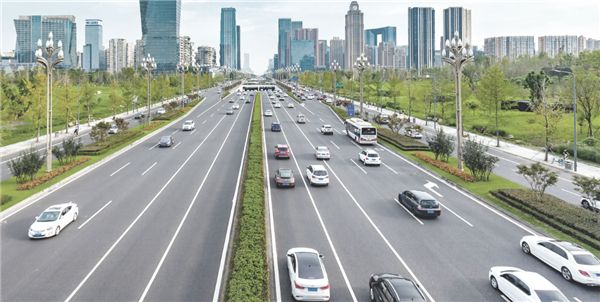Beijing to newly install at least 50,000 EV charging piles by 2022
Shanghai (ZXZC)- Beijing attempts to newly build no fewer than 50,000 EV charging piles and roughly 100 battery swapping stations by 2022, as part of action plans designed for a quicker move on constructing the so-called “new infrastructures”, a widely-discussed term expected to energize China’s economic development.
“To coordinate the development of human, vehicles, charging piles and power grids, we shall formulate an optimized plan about charging pile deployment and increase the volume of charging poles in old residential communities and transport hubs,” the government said in an action plan issued on June 10.
Those efforts will be made to boost the building of smart city. To achieve that purpose, the government will also set up a data transmission system focusing on the prevention and control of the pollutants discharged by motor vehicles and non-road mobile machinery, and a data bank for dynamic sharing.

(Photo source: Baidu Apollo)
Beijing will move faster to build a dedicated high-reliability low-latency IoV network available to the running of autonomous vehicles with Level 4 features or above, and speed up the construction and renovation of vehicle-road-cooperation facilities at self-driving pilot zones. A cloud-based control platform will be established to support the real-time cooperative sensing and control of high-level autonomous driving operations, the transport management and dispatching at service areas, and the regional public services like smart transportation management, road administration and fire protection. Besides, the authorities aim to pave 300-km roads fitted with ICV-related infrastructures and build demonstration zones covering over 300 square meters.
Furthermore, the Beijing government points out it will encourage companies to step up efforts on applying 5G and AI technologies in the trade and logistics facilities, and give support to the construction of relevant ICT equipment and the development of new business models like common distribution and “contactless” delivery.
Priority will be given to new infrastructure and new urbanization initiatives and major projects, which not only boost consumption and benefit the people, but also facilitate structural adjustments and enhance the sustainability of growth, Chinese Premier Li Keqiang addressed in the government work report 2020.
He pointed out that China will step up the construction of new types of infrastructure, develop next-generation information networks, expand 5G applications, and develop data centers. It will build more battery charging and swapping facilities and promote wider use of new-energy automobiles. Besides, the government will stimulate new consumer demand and promote industrial upgrading.

